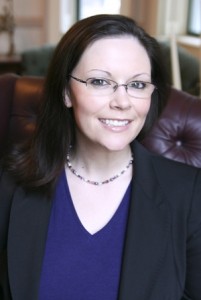Jessica Camp, Ph.D, LMSW, CAADC, Assistant Professor and Research Lead, Social Justice and Diversity Co-lead
Pulling together and investigating large chunks of sociological and economic data is a continually challenging and rewarding process for Jessica Camp, Ph.D., who joined the University of Michigan-Flint Social Work Department in September 2014. With a bachelor’s degree in psychology, she then earned her master’s in social work from U-M Ann Arbor, followed by her Ph.D from Wayne State University (WSU). She is an affiliate with U of M’s MIDAS (Michigan Institute for Data Science), is a Student Success Fellow, and licensed clinician.
Prior to joining UM-Flint, Assistant Professor Camp taught as an adjunct professor, and was a Ph.D. student, at WSU. Before entering academia she worked as an adult mental health therapist for Community Care Services in metro Detroit. She was responsible for coordinating the grant-funded Supported Education program in Wayne County, teaching classes to individuals in mental health and substance use recovery to help them access higher education. “Nearly eighty percent of the students who participated in our program eventually enrolled in college classes,” she said. “It was a brilliant example of the way that psychosocial rehabilitation can be used to empower those in recovery.”
What classes do you typically teach? As the research lead, I traditionally teach the research and statistics courses, such as: Quantitative and Qualitative Data Analysis, Statistics and Data Analysis for the Evaluation of Social Work Practice, Social Work Research Methods, and the final senior capstone.
What are your research interests? I am trained to be a mental health therapist but, while working on my doctorate with Professor Eileen Trzcinski at WSU, I was inspired to challenge poverty and inequality through data analysis. I use large, nationally-representative, and complex samples data sets that contain millions of cases. With this “Big Data” we can perform longitudinal analyses and track people over time. Combining analyses traditionally used in economics with sociological theories can help us understand ways that race, gender, and disability are met with inequality and poverty.
Although social scientists have understood that marginalized groups experience social and economic exclusion, the degree to which this has been occurring has sometimes not been clear. My research has helped show that not all types of disability or limitation are met with the same types of exclusion. For example, although individuals with mental health limitations are less likely to report having any type of work limitation they are less likely to be employed than individuals with physical or sensory limitations. This directly speaks to the ways that individuals with mental health disorders continue to experience discrimination and are excluded from participating in the labor market.
Who has inspired you in your field? I have been powerfully influenced by the students I worked with when I coordinated the Supported Education Program. They were the ones who influenced me to return to school to earn my Ph.D. Fellow academics that inspire me are many but include my former chair Dr. Eileen Trzcinski, Dr. Carol Mowbray, Dr. Sandra Danziger, and Dr. Luke Shaefer to name a small few. I’m also inspired by those who have peacefully stood against injustice like MLK, Gandhi, and Angela Davis. Naomi Tutu said during her recent campus address that if we see something that’s not right, we should do something about it. Social work’s job is to unpack issues and to understand the degree to which disparities exist. We’re a field of not just theorizing or thinking, but doing. It’s our responsibility. We get to wrestle with the big questions.
What do you want your students to know about how they can succeed in social work and make an impact? Social work is about students finding their passion to challenge social injustice, whether these have been from direct experiences in their own lives or things they have seen around them. The BSW program is giving them a toolbox of skills that they can use themselves to think critically about these issues and challenge them. From policy, to research, to interview skills, to theory we help students develop valuable and useful tools to be able to do this. At U of M, we have access to a wealth of data, information, knowledge, and resources. I try to inspire students to be self-learners, to plug into these resources and, hopefully, stay connected to these resources so they can continue to do amazing social justice work after they graduate.
Where do you see the field of social work headed? Although social workers were originally at the table for developing social service and social welfare policy in the United States we have been diminished in this role for some time. I think we’re going to see a big pushback with regard to policy implementation. As social workers get more involved with the implementation of social services we are also going to want a larger role in developing the rules under which these services are provided. The students are passionate and I think they are going to be powerful social change agents.

